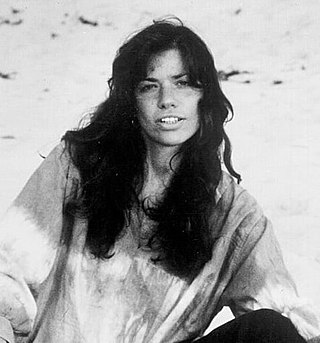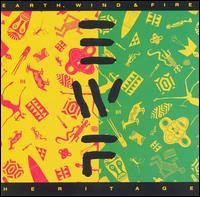
Earth, Wind & Fire is an American band whose music spans the genres of jazz, R&B, soul, funk, disco, pop, Latin, and Afro-pop. They are among the best-selling bands of all time, with sales of over 90 million records worldwide.

Carly Elisabeth Simon is an American musician, singer, songwriter, memoirist, and children's author. She rose to fame in the 1970s with a string of hit records; her 13 Top 40 U.S. hits include "Anticipation" (No. 13), "The Right Thing to Do" (No. 17), "Haven't Got Time for the Pain" (No. 14), "You Belong to Me" (No. 6), "Coming Around Again" (No. 18), and her four Gold-certified singles "You're So Vain" (No. 1), "Mockingbird", "Nobody Does It Better" (No. 2) from the 1977 James Bond film The Spy Who Loved Me, and "Jesse" (No. 11). She has authored two memoirs and five children's books.

The B-52's is the debut album by American New wave band the B-52's. The kitschy lyrics and mood, and the hook-laden harmonies helped establish a fanbase for the band, who went on to release several chart-topping singles. The album cover was designed by Tony Wright.

Ambient 1: Music for Airports is the sixth studio album by Brian Eno, released in 1978 by Polydor Records. It is the first of Eno's albums released under the label of ambient music, a genre of music intended to "induce calm and a space to think" while remaining "as ignorable as it is interesting". While not Eno's earliest entry in the style, it is credited with coining the term.
New-age is a genre of music intended to create artistic inspiration, relaxation, and optimism. It is used by listeners for yoga, massage, meditation, and reading as a method of stress management to bring about a state of ecstasy rather than trance, or to create a peaceful atmosphere in homes or other environments. It is sometimes associated with environmentalism and New Age spirituality; however, most of its artists have nothing to do with "New Age spirituality", and some even reject the term.

Cowboy Junkies are an alternative country and folk rock band formed in Toronto, Ontario, Canada in 1985 by Alan Anton (bassist), Michael Timmins, Peter Timmins (drummer) and Margo Timmins (vocalist). The three Timminses are siblings, and Anton worked with Michael Timmins during their first couple of bands. John Timmins was a member of the band but left the group before the recording of their debut studio album. The band line-up has never changed since, although they use several guest musicians on many of their studio albums, including multi-instrumentalist Jeff Bird who has performed on every album except the first.

Face Value is the debut solo studio album by English drummer and singer-songwriter Phil Collins, released on 13 February 1981 by Virgin Records. After his first wife filed for divorce in 1979, Collins began to write songs during a break in activity from Genesis with much of the material concerning his personal life. The album was recorded from mid-1980 to early 1981 with Collins and Hugh Padgham as producers. Additional musicians include the Phenix Horns, Alphonso Johnson, and Eric Clapton.

Invisible Touch is the thirteenth studio album by the English rock band Genesis, released on 6 June 1986 by Atlantic Records in the United States and on 9 June 1986 by Charisma/Virgin Records in the United Kingdom. After taking a break in 1984 for each member to continue their solo career, the band reconvened in October 1985 to write and record Invisible Touch with engineer and producer Hugh Padgham. As with their previous album, it was written entirely through group improvisations and no material developed prior to recording was used.

Bouncing off the Satellites is the fourth studio album by American new wave band the B-52's, released on September 8, 1986, by Warner Bros. Records. It was recorded in July 1985 and was produced by Tony Mansfield. Founding member and guitarist Ricky Wilson died of AIDS after most of the work on the album was completed, but a year prior to its release. The B-52's had gone on hiatus by the time Bouncing Off the Satellites was released, and it took three years for the band to recover from Wilson's death and release their next studio album, Cosmic Thing.

Andreas Vollenweider is a Swiss harpist. He is generally categorised as a new-age musician and uses a modified electroacoustic harp of his own design. He has worked with Bobby McFerrin, Carly Simon, Luciano Pavarotti and in 1987 received a Grammy Award for the album Down to the Moon. Vollenweider's style has been described by The New York Times as "swirling atmospheric music, which evokes nature, magic and fairy tales".

Maurice White was an American musician, best known as the founder, leader, main songwriter and chief producer of the band Earth, Wind & Fire, also serving as the band's co-lead singer with Philip Bailey.

Verdine Adams White is an American musician, best known as a founding member and bassist for the band Earth, Wind & Fire. White was placed at No. 19 on Rolling Stone's list of The 50 Greatest Bassists of All Time.

"Candle in the Wind" is a threnody written by English musician Elton John and songwriter Bernie Taupin, and performed by John. It was originally written in 1973, in honour of Marilyn Monroe, who had died 11 years earlier.

That's the Way of the World is the sixth studio album by American band Earth, Wind & Fire, released on March 3, 1975, by Columbia Records. It was also the soundtrack for a 1975 motion picture of the same name. The album rose to No. 1 on both the Billboard 200 and Top Soul Albums charts. That's the Way of the World has also been certified Triple Platinum in the U.S. by the RIAA. In 2002, the band released live version of the album, recorded in 1975 – That's the Way of the World: Alive in '75.

Philip James Bailey is an American singer, songwriter and percussionist, best known as an early member and one of the two lead singers of the band Earth, Wind & Fire. Noted for his four-octave vocal range and distinctive falsetto register, Bailey was inducted into the Rock and Roll Hall of Fame and the Vocal Group Hall of Fame as a member of Earth, Wind & Fire. Bailey was also inducted into the Songwriters Hall of Fame for his work with the band.

Birdy is the first soundtrack and sixth album overall by the English rock musician Peter Gabriel for the movie of the same name, released in 1985. The album marked Gabriel's first work with producer Daniel Lanois. It was remastered with most of Gabriel's catalogue in 2002.

Code is the eighth studio album by the English electronic band Cabaret Voltaire, released in October 1987 by EMI Records.

In Concert is a live double album by American jazz musician Miles Davis. It was recorded in 1972 at the Philharmonic Hall in New York City. Columbia Records' original release did not credit any personnel, recording date, or track listing, apart from the inner liner listing the two titles "Foot Fooler" and "Slickaphonics."

Heritage is the fifteenth studio album by American band Earth, Wind & Fire, released in February 1990 on Columbia Records, and was their final release of new music for the label. The album reached No. 19 on the US Billboard Top R&B Albums chart and No.18 on the UK Blues & Soul Top British Soul Albums chart. Heritage also got to No. 31 on the Japanese Oricon Albums Chart and No. 39 on both the Finland Suomen virallinen albumilista and the German Pop Albums chart.

Goodbye Tiger is the fourth studio album by Australian rock music singer-songwriter, Richard Clapton. It was released in August 1977 via Infinity Records/Festival Records and was produced by Richard Batchens. It peaked at No. 11 on the Kent Music Report Albums Chart. In October 2010 it was listed at No. 15 in the book, 100 Best Australian Albums.



















